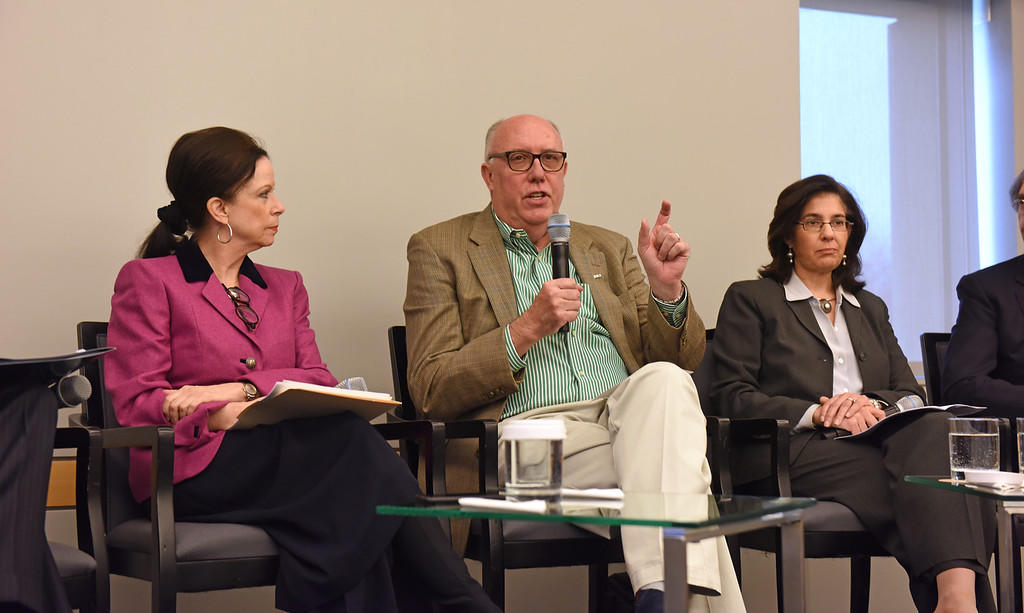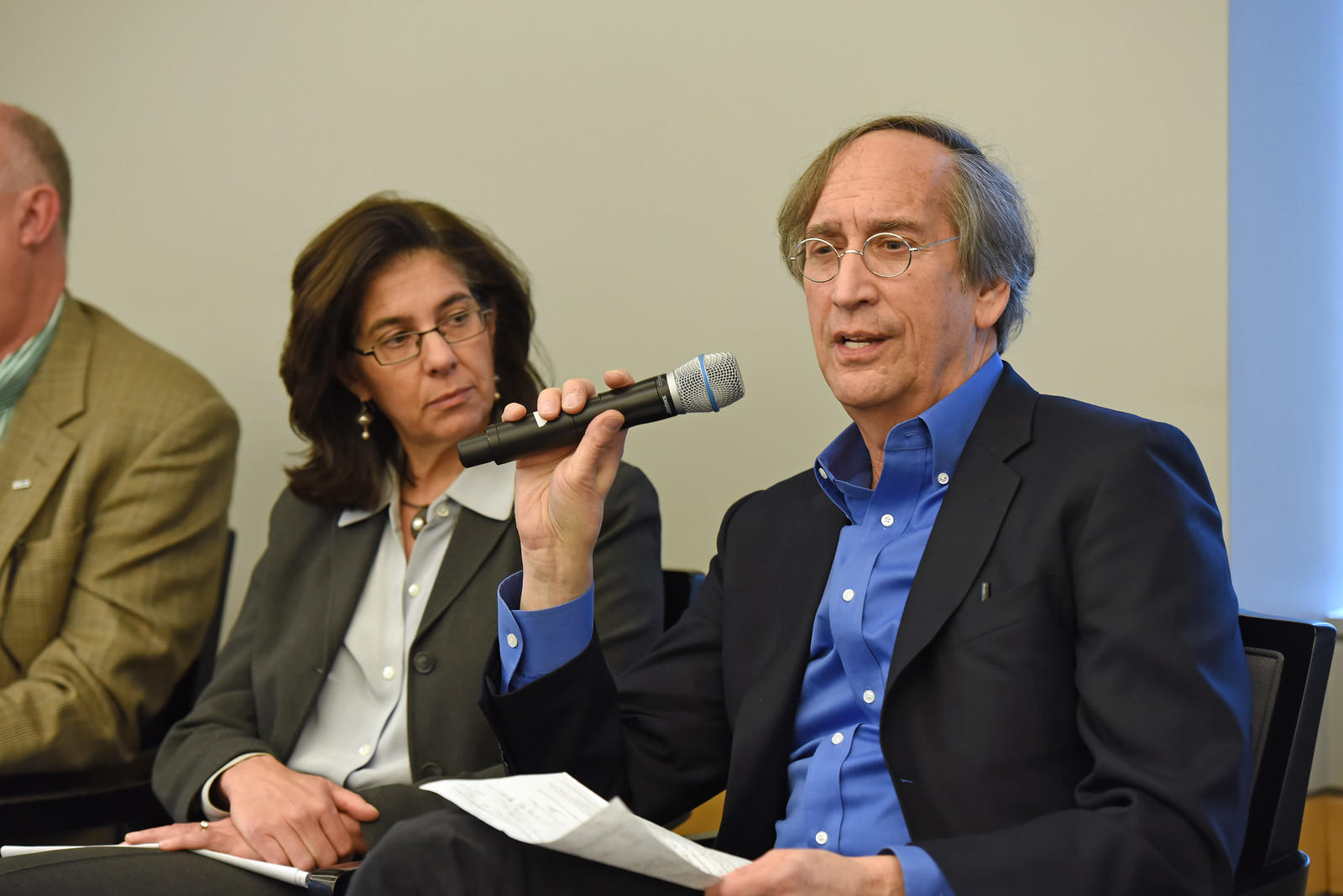The Middle East: Divided, Dysfunctional
Amid 2017’s Dramatic Changes, No Clear ‘Winner’
The Middle East was tumultuous even before President Trump upended a core U.S. policy by recognizing Jerusalem as Israel’s capital. The Islamic State (ISIS) caliphate collapsed. Syria’s Assad regime all but won the six-year civil war, consolidating Iranian and Russian influence. Saudi Arabia purged parts of its royal family. Lebanon’s prime minister abruptly resigned, only to reverse that decision. Iraq’s Kurds voted for independence, triggering confrontation with Baghdad. While no country has won an overall advantage in the most recent changes, Iran and its Shia Muslim allies have made gains at the expense of Sunni rivals, led by Saudi Arabia.

Iran and its allies, especially Lebanon’s Hezbollah, are in a stronger position nearly seven years after the Arab Spring and the start of the Syrian conflict. They are in positions of power in Syria, Iraq, Lebanon and Yemen. Meanwhile, Sunni powers and close U.S. allies, notably Saudi Arabia, have lost their dominance over the region.
While the Trump administration has pledged to counter Iran, it has done little to contain Iranian influence in the region, according to longtime Middle East policy specialist Aaron David Miller. Miller was one of several analysts who assessed the state of the region in a December 5 discussion at USIP.
The Middle East Now: 10 Headlines
Journalist Robin Wright, a joint fellow at USIP and the Woodrow Wilson International Center for Scholars, summarized key realities in 10 headlines:
- In four decades, the Middle East has never been so dysfunctional, divided and politically precarious.
- The political spectrum is now more polarized than at any point since the region’s countries gained independence. Political choices often are between an autocrat, like Egypt’s field marshal turned president, Abdel Fattah El-Sisi, or extremist groups, like the so-called Islamic State (ISIS).
- The Middle East faces an unprecedented generational challenge. The 21st-century generation is better educated and interconnected by social media. It is now a majority in many countries and confronts old elites unwilling to cede power.
- The ISIS caliphate is vanquished but jihadism is not. In the absence of political and economic solutions or strong institutions, jihadism will still have an appeal. ISIS has shifted to the Sinai, Afghanistan and Libya.
- There are no winners in these political wars and crises. Solutions that are acceptable to the United States and viable on the ground are not obvious.
- Sunni and Shia Muslims have exchanged roles. For centuries, Sunnis dominated the region, politically, economically and socially. But they now lack leadership and direction while Shia groups are organized and feel they have a purpose. Hezbollah has branches or activities in Syria, Iraq and Yemen. The Sunnis are the new Shia.
- Iran is more powerful than at any point since the 1979 revolution. It is no longer a pariah in many parts of the world, and it has allies in power in Baghdad, Damascus and Beirut.
- Syrian President Bashar al Assad is likely to remain in power until the 2021 election, but he has hardly won. He may be more vulnerable in peace than in war, in part because his allies, all weighing their other priorities, may become slower to support him.
- In Saudi Arabia, Crown Prince Mohammed bin Salman, has challenged the royal family’s cohesion and the principle of ruling by consensus. With no credentials as a religious scholar, he has pledged to promote a moderate Islam. While trying to increase Riyadh’s influence against Iran and its allies, he has destroyed unity within the Gulf Cooperation Council, launched a war in Yemen and created a political crisis in Lebanon.
- The Trump administration, though popular among Arab autocrats, has made a mistake by investing heavily in just a few countries, notably Israel and a few Sunni allies.

A Change at the Core: Saudi Arabia Turns Volatile
In 40 years of watching Saudi Arabia, analyst Bruce Riedel said, he found 37 of them predictable. “You could easily say who would be king in 20 years,” said Riedel, a former CIA analyst who directs the Intelligence Project at the Brookings Institution. That has changed since King Salman ascended to the throne and ceded much power to his 32-year-old son. “It is extremely volatile, it is extremely unpredictable, and … it is dangerous,” Riedel said.
Of three fundamental challenges facing the kingdom, he said, the first is economic. Low oil prices have slashed government revenues over about five years. The country’s cradle-to-grave welfare system for citizens is no longer sustainable, and the government does not seem to have a ready plan to deal with this.
Saudi Arabia has spent a third of its foreign exchange reserves in the past three years. The government this year tried to cut subsidies for energy, including gasoline, but reversed that move due to public opposition. The government also had to reverse course after trying to cut public sector salaries. The kingdom remains burdened by a defense budget that in recent years has been the world’s third- or fourth-largest.
The second challenge is national security, where the Saudis pursued low-risk policies for a half-century, Riedel said. They “sought to intervene in the region subtly, behind the scenes, usually with their checkbook.”
Saudi Arabia is now more aggressive, willing to intervene militarily, Riedel noted. In 2011, it sent troops to help Bahrain’s Sunni monarchy quash public protests from within the majority Shia population. In 2015, Mohammed bin Salman, as defense minister, launched “Operation Decisive Storm” to oppose the Houthis, a Zaydi Shia rebel movement that had seized power. “The only thing decisive about it, 30 months later, is the decisive damage it’s done to the Yemeni people,” Reidel said. The war and a Saudi blockade have triggered a humanitarian crisis in which a quarter of Yemen’s 28 million people are starving.
In conflicts in Yemen, Qatar and other places, Saudi Arabia has embarked on ambitious programs with no real plan for following through, Riedel said.
The kingdom’s third challenge is succession— “always the Achilles’ heel … in an absolute monarchy,” Riedel argued. The current Saudi state, the third iteration, follows two Saudi kingdoms that failed largely because of succession politics. The removal of two Saudi crown princes within three years has raised questions about cohesion and legitimacy in the royal family, Riedel said, and recent arrests of more than 100 officials in a reported corruption crackdown shows that the rule of law has broken down. No charges have been released, he noted.

In Syria, New Agendas for Warfare
After six-plus years, Syria’s multi-sided civil war is shifting to a post-ISIS phase, with the balance of power altered and combatant forces eyeing new objectives. One key change: Hezbollah is emerging far more emboldened, noted Mona Yacoubian, a USIP senior advisor on Syria and the region. It “has transformed into a more regional power with, by all accounts, an even more bristling arsenal and a battle-hardened army,” she said. Its new strength will be a key concern for Israel.
The winding down of the military campaign against ISIS has let potential new conflicts come to the fore, Yacoubian said:
- Assad has vowed to retake all of Syria, which could require further fighting with Syria’s Kurds. The Kurds control territory, water resources and gas fields that would be essential for Assad’s consolidation of power.
- The United States’ alliance with the Syrian Kurds and its role in Raqqa increase the likelihood of conflict pitting U.S. forces against the regime and its allies. Syria and Iran regard Raqqa as an occupied city and say the American presence there is illegal.
- Turkey has repeatedly expressed alarm at the prospect of a Kurdish autonomous region along its border with Syria. Ankara may decide that it now can act.
- Perhaps most importantly, the potential for conflict between the United States and Iran has increased. National Security Advisor H.R. McMaster recently said that 80 percent of Assad’s forces on the ground were Iranian proxies who are seeking to establish a land bridge from Iran to the Mediterranean.
U.S. Policy: Transactional, Not Transformational
An effective U.S. policy in the Middle East must begin with the U.S. government defining its interests in the region, said Aaron David Miller, vice president for New Initiatives and Middle East program director at the Woodrow Wilson Center.
The Trump administration is inherently risk-averse, said Miller, a Middle East specialist who advised Republican and Democratic secretaries of state over two decades. In early 2017, it put Iran on notice but has done little to contain or roll back Iranian influence in the region, he said. The administration’s approach is transactional in character, not transformational, Miller said, with no proclivity for spending large sums of money or deploying American forces in pursuit of “nation building.”
President Trump’s foreign policy has given a priority to partnerships with key Middle East allies: Israel, Egypt and Saudi Arabia. Trump’s immediate four predecessors chose Canada or Mexico for their first trips abroad, but he went to Israel and Saudi Arabia. Miller noted the administration’s special interest in the Israeli-Palestinian conflict, speaking the day before President Trump’s controversial declaration recognizing Jerusalem as Israel’s capital. Any solution will require strong Israeli and Palestinian leaders who are masters, not prisoners, of their constituencies, Miller said.



